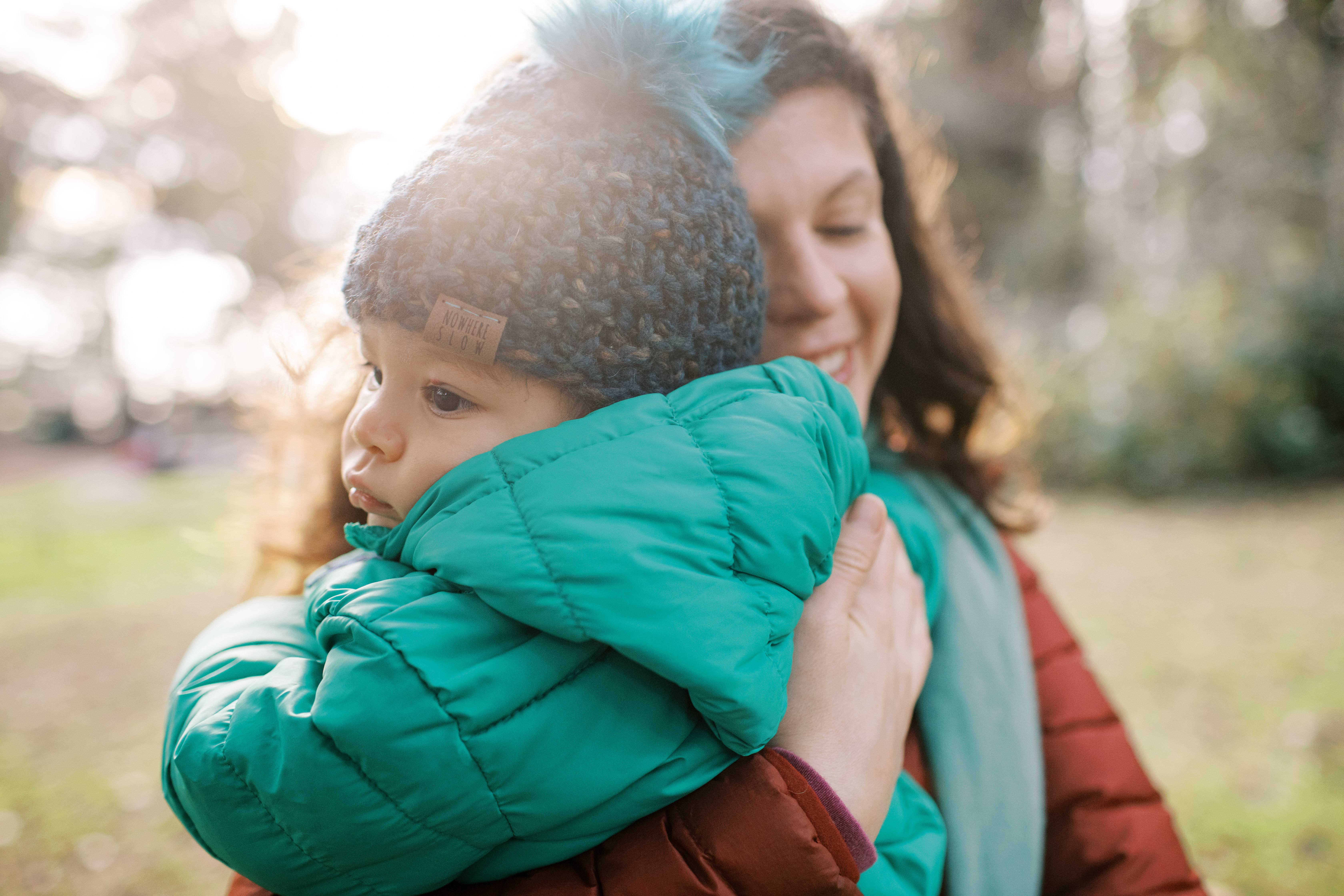By Beth Goss, Parent Education Instructor North Seattle College (Estimated reading time: 4 minutes)

As a parent education instructor with the North Seattle College Cooperative Preschools, I often get this question from toddler parents: “When does this get easier?”. They know my adult children have launched and they’re expecting me to have some great wisdom as to how this will all turn out. They’re assuming the early years are the difficult years so they’re less than pleased when I answer with, “It doesn’t get easier, it gets different.” But strangely, it’s also the same.
Take adolescence, for instance. So many teen behaviors mirror toddler behaviors. Reactions to disappointment are often way out of proportion to what’s actually happening. Both seek autonomy, but need a caring adult nearby to support them if they fail. They want to do everything themselves, but don’t always have the good judgment, or even the skills, to accomplish it. Oh, and they both know how to push our buttons!
There’s a good reason for this. Infants and toddlers undergo rapid brain growth. Around 80% of brain development happens in the first three years of life. And do you know when another period of rapid growth occurs? That’s right, it’s adolescence. As the brain grows, it’s creating millions of connections between the limbic system and the prefrontal cortex. We’re all born with the limbic system, the “emotion center” of the brain, but the prefrontal cortex, the area where higher level thinking and decision making happens, needs to develop over time. In fact, we now know that adolescence lasts until we’re around 25 years old!
Why does this matter? Your child’s brain is essentially “under construction.” A lot of that construction centers around getting our limbic system and our prefrontal cortex to communicate with each other. Things move quickly in the emotion center of the brain. Has your toddler (or teen) ever completely melted down over something trivial? Maybe the shirt they want to wear is in the wash. To us, it may seem silly, but to them it feels incredibly important.
That’s because they don’t have all of the neural connections they need yet. An adult with a fully developed brain has executive functioning skills. For example, the ability to stop doing something you enjoy and start doing something you don’t. For toddlers I’m picturing the “leaving the park” scenario. And for teens, it’s often the “screen time instead of homework” nightly battle. Children slowly acquire this ability, partially by co-regulating with us. If we can stay calm, they can learn to get calm. While that works well with young children, adolescents are often more likely to accept influence from friends than from parents.
So, what can we do?
- Understand that your teen is going through a period of growth and change, just like in the toddler years.
- Examine your expectations. It’s easy to forget that teens are not adults. Drop-of-the-hat freakouts are typically accepted (although not enjoyed) by parents of two and three-year-olds. But when teens do it, it’s bigger and louder, and we have very little control over the situation. And often, more is at stake. Try to remember that teens are still learning how to deal with their feelings appropriately. Their peers may be more influential, but it’s important for us to model self-control and problem-solving when we’re able.
- Think about the long game. This is advice I often give parents of young children, and it applies at every stage. You’re going to know your child for a long time, so what do you want your relationship to look like? Do you want your child to see you on the other side of a power struggle, or do you want to work through problems together? For me, as a parent, I wanted my kids to WANT to stay emotionally connected with me, even after they were grown. Don’t get me wrong, the teen years were rough! I was definitely not the perfect role model for emotional regulation, but I always kept this parenting goal in mind.
Teens and toddlers are similar in so many ways. They both need our help, but really don’t want to ask for it. So try to remember that they’re going through momentous changes, and what they need most is a soft place to land.
Additional Resources:
- Brainstorm, The Power And The Purpose of The Teenage Brain by Dr. Dan Siegel
- Parent Coaching and Support with Beth Goss
- Resource list for parents of adolescents and teens from PEPS
Looking for empowering support, research-driven information and resources, and community as you navigate the highs and lows of parenting an adolescent? Learn more about the PEPS Program for Parents of Adolescents and Teens (PAT) and register today!

About the Author
Beth Goss (she/her) is a full-time faculty member at North Seattle College and has been teaching parent education classes in the co-op preschool system since 2002. She is also a Certified Gottman Educator and Training Specialist for the Bringing Baby Home program, a Certified Childbirth Educator, and a PEPS Guest Speaker. Beth’s philosophy of parenting is relationship-based, and her goal is to empower parents to stay in connection with their children while weathering the ups and downs of raising a family. She is the proud mom of two semi-adult children.

